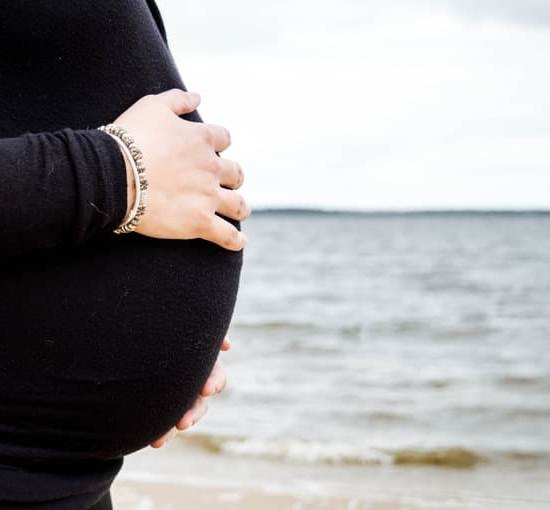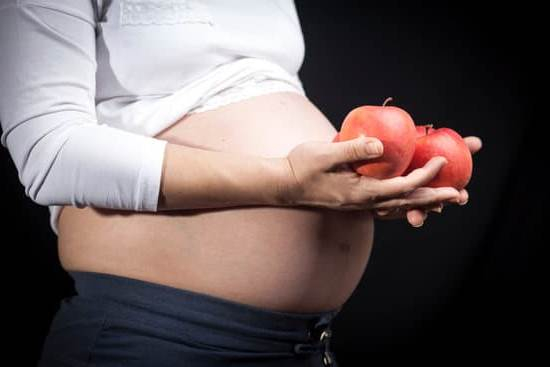Are you experiencing twin pregnancy symptoms and wondering what to expect? Twin pregnancies are a unique and exciting journey for expecting mothers, but they also come with their own set of challenges and considerations. Understanding the symptoms, physical changes, risks, and management of discomforts associated with twin pregnancies is crucial for a healthy and successful pregnancy.
From early signs of twin pregnancy to delivery options, there is a lot to learn about this special type of pregnancy. In this article, we will explore the various aspects of twin pregnancies, including physical and emotional changes, risks and complications, management strategies, nutrition and exercise tips, medical tests and monitoring, as well as delivery options.
Whether you are already pregnant with twins or simply curious about twin pregnancy symptoms and experiences, read on to gain valuable insight into what to expect from a twin pregnancy journey. Understanding the unique challenges that come with carrying twins can help expecting mothers feel more informed and prepared for this extraordinary experience.
Early Signs and Symptoms of Twin Pregnancy
During a twin pregnancy, it is common for women to experience a set of early signs and symptoms that differ from those of a singleton pregnancy. While some symptoms may be similar, others can be more pronounced or appear earlier in the pregnancy. It is important for women expecting twins to be aware of these signs and symptoms so they can seek proper medical care and support throughout their pregnancy journey.
Increased HCG Levels
One of the earliest signs of a twin pregnancy is higher levels of human chorionic gonadotropin (HCG) hormone in the body. This hormone is produced by the placenta and is responsible for triggering positive results on pregnancy tests. Women expecting twins often have HCG levels that are significantly higher than those carrying a single baby, leading to an earlier detection of pregnancy or stronger positive test results.
Severe Morning Sickness
Nausea and vomiting, commonly referred to as morning sickness, can be more intense in women with twin pregnancies. Some expectant mothers carrying twins may experience severe morning sickness that lasts longer than the typical first trimester, making it important to consult with healthcare providers for proper management.
Rapid Weight Gain and Larger Belly Size
Due to the presence of two babies instead of one, women pregnant with twins may notice rapid weight gain and a larger belly size compared to singleton pregnancies. This is because the uterus expands at a faster rate, causing the abdomen to grow more quickly. Some women may also report feeling movement or kicks earlier than expected due to having two active babies in the womb.
Being aware of these early signs and symptoms of twin pregnancy can help expectant mothers better understand what to expect and seek appropriate prenatal care to support a healthy pregnancy journey. If any concerns arise about potential twin pregnancy symptoms, it is crucial for women to consult with their healthcare providers for guidance and support.
Physical and Emotional Changes in Twin Pregnancy
During a twin pregnancy, a woman’s body undergoes numerous physical and emotional changes as it works hard to accommodate the growth of two babies. These changes can be more intense and pronounced compared to a singleton pregnancy, and it is important for expectant mothers to be aware of what to expect.
Physical Changes
Physically, women carrying twins may experience more severe morning sickness, excessive weight gain, increased fatigue, and higher levels of discomfort due to the added pressure on their organs. As the pregnancy progresses, they may also notice an increase in the size of their abdomen at a faster rate than with a singleton pregnancy. Additionally, twin pregnancies are at a higher risk for certain complications such as gestational diabetes and preeclampsia, making it crucial for women to receive proper prenatal care.
Emotional Changes
Emotionally, the journey of a twin pregnancy can be overwhelming for many women. The realization that they will soon be responsible for not one but two little lives can lead to anxiety and stress.
It is common for expectant mothers of twins to experience mood swings and heightened emotions as they prepare mentally and emotionally for the arrival of their babies. Seeking support from loved ones or joining a support group for other mothers of multiples can provide much-needed emotional reassurance during this time.
Coping Strategies
To cope with these physical and emotional changes, it is important for women expecting twins to prioritize self-care and seek regular check-ups with their healthcare provider. Engaging in relaxation techniques such as prenatal yoga or meditation can help alleviate stress and promote overall well-being.
Open communication with one’s partner about fears and anxieties can also strengthen the bond between couples during this challenging yet exciting time. Being mindful of one’s mental health is essential in navigating the physical demands of a twin pregnancy while maintaining emotional balance.
Risks and Complications Associated With Twin Pregnancy
It is important for women expecting twins to be aware of the potential risks and complications that may arise during their pregnancy. Being informed about these factors can help expectant mothers anticipate and manage any challenges that may come their way.
Some of the common risks and complications associated with twin pregnancies include:
1. Preterm birth: Twins are more likely to be born early, before 37 weeks of gestation. This can lead to health problems for the babies, as their organs may not be fully developed.
2. Gestational diabetes: Women carrying twins have a higher risk of developing gestational diabetes, a condition that affects blood sugar levels during pregnancy.
3. Preeclampsia: This is a potentially serious condition characterized by high blood pressure and damage to other organ systems, most often the liver and kidneys. It can lead to complications for both the mother and babies if left untreated.
4. Anemia: Carrying two babies can put a strain on a woman’s iron stores, leading to an increased risk of anemia during pregnancy.
5. Growth restriction: Twin pregnancies are at higher risk for growth restriction, where one or both babies are not growing adequately in the womb.
6. Cesarean delivery: Due to the unique challenges of delivering twins, such as positioning of the babies in the womb, women carrying twins have a higher likelihood of requiring a cesarean section rather than vaginal delivery.
It is important for women expecting twins to work closely with their healthcare providers to monitor and manage these potential risks throughout their pregnancy journey.
Managing Discomforts in Twin Pregnancy
During a twin pregnancy, women may experience discomforts that are often more intense than those in a singleton pregnancy. This is because the body is under increased stress and strain to support two growing babies. Common discomforts in twin pregnancy include backaches, pelvic pain, constipation, and shortness of breath due to the enlarged uterus putting pressure on the organs and muscles.
Managing these discomforts involves finding ways to alleviate the symptoms while ensuring the safety of both mother and babies. For backaches and pelvic pain, using proper body mechanics and practicing gentle exercises such as prenatal yoga or swimming can help alleviate the discomfort.
Additionally, using supportive pillows while sleeping or sitting can also provide relief. Constipation can be managed by increasing fiber intake through whole foods like fruits, vegetables, and whole grains, as well as staying hydrated by drinking plenty of water throughout the day.
Another common discomfort in twin pregnancy is shortness of breath, which occurs as the growing uterus puts pressure on the diaphragm. To manage this symptom, it’s important for expectant mothers to practice good posture and avoid slouching that may further compress the chest cavity. Engaging in light physical activities like walking or prenatal exercises can also help improve lung capacity and ease breathing difficulties during a twin pregnancy.
In addition to physical discomforts, emotional changes are also common during a twin pregnancy. Mothers may feel overwhelmed by the thought of caring for two newborns at once or worry about potential complications associated with carrying twins. It’s important for expectant mothers to seek emotional support from their partners, family members, friends, or healthcare providers to address any anxiety or stress they may be experiencing during this unique journey of carrying twins.
Nutrition and Exercise Tips for a Healthy Twin Pregnancy
During a twin pregnancy, it is crucial for expectant mothers to prioritize their health and well-being through proper nutrition and regular exercise. With the added demands that come with carrying twins, it’s essential to carefully manage diet and physical activity to ensure a healthy pregnancy for both the mother and her babies.
To support a healthy twin pregnancy, consider incorporating the following nutrition tips:
- Increase your calorie intake: A twin pregnancy typically requires more calories to adequately nourish both babies. Aim to consume an additional 300-500 calories per day compared to a singleton pregnancy.
- Focus on nutrient-dense foods: Choose whole, nutrient-rich foods such as fruits, vegetables, lean proteins, whole grains, and dairy products to provide essential vitamins and minerals for fetal development.
- Stay hydrated: Drink plenty of water throughout the day to support circulation, maintain amniotic fluid levels, and aid in digestion.
In addition to proper nutrition, incorporating safe and appropriate exercise into a twin pregnancy routine can offer numerous benefits. Here are some exercise tips tailored for expectant mothers carrying twins:
- Consult with your healthcare provider: Before beginning or continuing an exercise regimen during a twin pregnancy, it’s important to discuss your plans with your healthcare provider to ensure that they are safe and suitable for your individual circumstances.
- Engage in low-impact activities: Opt for gentle exercises such as prenatal yoga, swimming, walking, or stationary cycling to minimize joint strain and reduce the risk of injury.
- Listen to your body: Pay attention to how you feel during exercise and modify or discontinue any activities that cause discomfort or excessive strain on your body.
By prioritizing proper nutrition and incorporating safe exercise practices into their daily routines, mothers can promote a healthier twin pregnancy while also preparing their bodies for labor and delivery. These efforts can contribute to better overall well-being for both the expectant mother and her unborn twins.
Medical Tests and Monitoring for Twin Pregnancy
During a twin pregnancy, it is crucial to undergo regular medical tests and monitoring to ensure the health and well-being of both the mother and the babies. Early in the pregnancy, your healthcare provider will recommend routine prenatal screenings such as blood tests, ultrasounds, and urine tests to confirm the presence of twins and monitor their development. These tests are essential for detecting any potential complications early on.
In addition to routine prenatal screenings, additional tests may be required for twin pregnancy. Nonstress tests (NSTs) may be recommended in the later stages of the pregnancy to monitor fetal heart rate and movement.
This test helps ensure that both babies are receiving an adequate oxygen supply. Your healthcare provider may also recommend biophysical profiles (BPPs) to assess the overall well-being of each baby by evaluating factors such as fetal movements, muscle tone, breathing movements, and the volume of amniotic fluid.
Furthermore, close monitoring through regular prenatal visits is vital for managing twin pregnancy symptoms such as increased weight gain, high blood pressure, gestational diabetes, and preterm labor. These visits allow your healthcare provider to address any concerns or complications promptly. It is important to attend all scheduled prenatal appointments and follow your healthcare provider’s recommendations for medical tests and monitoring to ensure a healthy twin pregnancy.
| Tests | Purpose |
|---|---|
| Ultrasound | To confirm presence of twins and monitor their development |
| Nonstress Test (NST) | To monitor fetal heart rate and movement in later stages |
| Biophysical Profile (BPP) | To assess overall well-being of each baby by evaluating various factors |
Twin Pregnancy Delivery and Birth Options
When it comes to the delivery and birth options for a twin pregnancy, there are several factors to consider. The most common types of delivery for twins are vaginal delivery and cesarean section.
Vaginal delivery is usually possible if the first baby is in the head-down position, but the second baby’s position also needs to be considered. A cesarean section may be recommended if there are complications during labor or if the babies are not in the optimal position for a vaginal birth.
Another important consideration for twin birth options is where the delivery will take place. Some women may opt for a hospital birth to have access to medical interventions if needed, while others may choose a birthing center or even a home birth with a qualified midwife. The location of the birth will depend on the mother’s overall health, previous medical history, and her preference for the birthing experience.
It’s essential for women expecting twins to discuss their delivery and birth options with their healthcare provider early in their pregnancy. This will allow them to make an informed decision based on their individual circumstances and any potential risks associated with a twin pregnancy. Proper planning and open communication with healthcare professionals can help ensure a safe and positive birthing experience for both mother and babies.
| Delivery Options | Considerations |
|---|---|
| Vaginal Delivery | Possible if first baby is head-down, second baby’s position needs consideration |
| Cesarean Section | Recommended if complications arise during labor or if babies are not in optimal positions |
| Location of Birth | Hospital, birthing center, or home birth depending on individual circumstances and preferences |
Conclusion
In conclusion, experiencing a twin pregnancy can be both overwhelming and exciting. The early signs and symptoms of twin pregnancy may present unique challenges, but with proper understanding and preparation, it can also be a journey filled with joy and anticipation. Embracing the physical and emotional changes that come with carrying twins is essential in ensuring a healthy and positive experience for both the mother and her babies.
It is important for women experiencing twin pregnancy symptoms to be aware of the potential risks and complications associated with carrying twins. Proper medical care, monitoring, and management of discomforts are crucial in ensuring the well-being of both the mother and her babies. By staying informed, seeking appropriate prenatal care, maintaining a nutritious diet, engaging in safe exercise routines, and undergoing recommended medical tests, women can increase their chances of a successful twin pregnancy.
In addition to managing physical discomforts associated with twin pregnancy symptoms, it is equally important for expectant mothers to seek emotional support from their partners, family members, friends, or support groups. The journey of carrying twins may bring about mixed emotions, anxiety, and stress at times.
By embracing this journey together as a family unit and receiving adequate support from healthcare professionals and loved ones, women can navigate the challenges of twin pregnancy with greater confidence and peace of mind. Ultimately, the experience of a twin pregnancy should be celebrated as a remarkable chapter in a woman’s life journey.
Frequently Asked Questions
What Is It Like to Be Pregnant With Twins?
Being pregnant with twins can be both exciting and challenging. The physical demands on the body are often greater compared to carrying a single baby. There may be increased discomfort, fatigue, and higher risks for complications such as preterm labor or gestational diabetes. However, the prospect of welcoming two babies into the world can also bring immense joy and anticipation.
How Do I Know I’m Pregnant With Twins?
There are several signs that may indicate a twin pregnancy. A key indicator is higher than normal levels of hCG (human chorionic gonadotropin) during early pregnancy, which can be detected through blood tests or in some cases, home pregnancy tests.
Women pregnant with twins might also experience more severe morning sickness, rapid weight gain, and larger-than-expected uterus size for their stage of pregnancy. An ultrasound scan is typically the most reliable way to confirm a twin pregnancy.
How Early Can You Feel Twins in Pregnancy?
Some women report feeling fetal movements sooner when they’re expecting twins compared to a singleton pregnancy. This is because there are two babies sharing the womb, which means there’s a higher chance of detecting movement early on.
Generally, women who have been pregnant before may notice movements earlier due to familiarity with the sensation. Feeling fetal movements as early as 16-18 weeks is not uncommon for women carrying twins, although individual experiences may vary.

Welcome to my fertility blog. This is a space where I will be sharing my experiences as I navigate through the world of fertility treatments, as well as provide information and resources about fertility and pregnancy.





